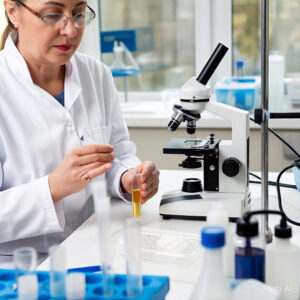Panorama Centre For Surgical Oncology
Afirma: Genomic testing for thyroid nodules

What is the Afirma Test?
The Afirma Genomic Sequencing Classifier (GSC) is a sophisticated test that helps determine whether thyroid nodules (lumps in the thyroid gland) are benign (non-cancerous) or suspicious for cancer. It analyzes the genetic information in cells collected from your thyroid nodule.
How the Afirma Test Works
The Afirma test uses advanced genomic technology that goes beyond standard pathology:
- Advanced Analysis: The test analyzes RNA from fine-needle aspiration (FNA) samples using whole-transcriptome sequencing and machine learning algorithms.
- Clear Classification: Nodules are classified as either benign (recommending monitoring) or suspicious (guiding surgical planning).
- Additional Genetic Insights: For suspicious nodules, the complementary Afirma Xpression Atlas identifies specific genetic alterations (such as BRAF, RET/PTC) to better assess cancer risk and potentially inform targeted therapies if cancer is present.
Clinical Performance and Benefits Over Standard Pathology
The Afirma test offers significant advantages compared to traditional pathology:
- High Accuracy:
- 96% Negative Predictive Value for ruling out cancer in Bethesda III/IV indeterminate nodules
- 52-68% Specificity, which reduces unnecessary surgeries by approximately half compared to cytology alone
- Real-World Impact:
- Studies show a 90% reduction in surgical referrals for nodules classified as benign by Afirma
- Nodules classified as suspicious by Afirma have demonstrated malignancy rates of 44-60%, improving surgical decision-making
When is this Test Recommended?
Your doctor might recommend the Afirma test if:
- You have a thyroid nodule that was tested by Fine Needle Aspiration (FNA) biopsy
- The FNA results came back as “indeterminate” (unclear whether the nodule is benign or cancerous)
- Your doctor needs more information to decide whether surgery is necessary
South African Availability and Testing Procedure
In South Africa, the Afirma test is exclusively available through the Panorama Centre for Surgical Oncology (PACSO) in Cape Town. The process involves:
- Repeat FNA Procedure: Even if you’ve already had an FNA, a repeat procedure will be necessary to ensure enough cellular material is collected specifically for genomic analysis.
- International Processing: After collection, your sample will be couriered to the United States for analysis.
- Waiting Period: Results typically take approximately 2 weeks to return from the USA.
Cost Considerations
The Afirma test carries significant financial implications for South African patients:
High Cost: The test is expensive, with costs that may range into tens of thousands of Rands.
No Insurance Coverage: Currently, South African medical aid schemes do not cover the Afirma test, meaning the full cost must be paid out-of-pocket.
Additional Expenses: Beyond the test itself, you may incur costs for:
- The repeat FNA procedure
- Specialist consultation fees
Benefits of the Afirma Test
Despite the cost, the Afirma test offers important benefits:
- Avoiding Unnecessary Surgery: Up to 60% of patients with indeterminate nodules who test benign with Afirma can avoid thyroid surgery.
- Peace of Mind: A definitive answer about whether your nodule is likely benign can reduce anxiety.
- Surgical Planning: If surgery is needed, having more information helps your doctor plan the appropriate extent of surgery.
- Potential Long-term Cost Savings: While expensive upfront, avoiding an unnecessary surgery can save significantly more in surgical costs, recovery time, and lifetime thyroid medication.
Alternatives to Consider
Given the high cost and lack of insurance coverage, you might want to discuss these alternatives with your doctor:
- Monitoring: Regular ultrasound monitoring of the nodule over time
- Traditional Diagnostic Surgery: A diagnostic surgical procedure to remove part or all of the thyroid
Questions to Ask Your Doctor
- Is the Afirma test absolutely necessary in my case?
- How will the results change my treatment plan?
- What would be your recommendation if I cannot afford this test?
